Reducing carbon emissions requires action from all of us – government, businesses and individuals. So here’s a quick guide on what you can do…
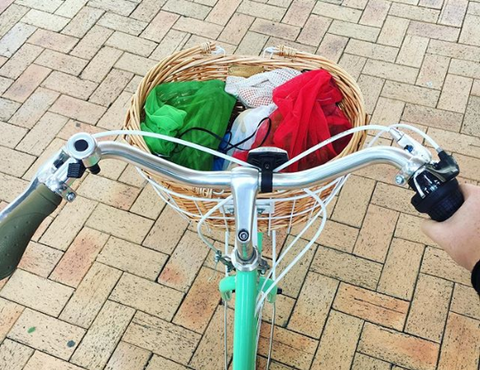
Ride Your Bike Is it a coincidence that Denmark is consistently ranked in the top 3 happiest countries and also has one of the highest per capita rates of cycling? Maybe, but they’ve also found that children who cycle and walk to school are much better at concentrating. The more people who cycle the safer it will be, so download a copy of Christchurch’s cycling maps and get on your bike (Also, Denmark and Christchurch are both flat, so we have no excuse!)
Support Local and Ethical Businesses If we want a world where businesses take responsibility for the environment, we have to support them. Shopping locally keeps money in the community and reduces carbon emissions and packaging. When you shop from ethical businesses your dollars are working all the way down the supply chain improving lives and the environment. To help you out, we've put all our NZ-made products on sale until the end of May.
Eat Less Meat. But this doesn’t mean you have to be vegan or even vegetarian, if we all switched to eating a Mediterranean diet (chicken a couple of times a week, beef once a month, and plenty of plant based foods) we could solve 15% of global warming by 2050! It’s equivalent of taking 1 billion cars off the road.
Switch to Reusables New Zealanders use 808,000 disposable coffee cups every year, wasting re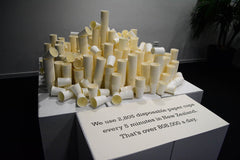 sources and emitting carbon. Reusable coffee cups are bulky and can leak in your bag – try a Stojo collapsible coffee cup which conveniently fits in your pocket or bag.
sources and emitting carbon. Reusable coffee cups are bulky and can leak in your bag – try a Stojo collapsible coffee cup which conveniently fits in your pocket or bag.
Speak Up – Fill in the CCC survey to let the council know how you are reducing your carbon emissions and how you’d like them to improve.
]]>
Plastic is lightweight and cheap, making it dangerously impactful on the environment. Think of a plastic bag and how much it resembles a parachute when it gets caught in the wind. Even if we don’t purposefully litter, we often unintentionally cause plastic to end up in the ocean. Here are some of the ways it happens and what we can do about it.

At the beach
At Cape Arnham in the Northern Territory in Australia footwear and jandals were found to be the most common item littering the beach. Jandals are inexpensive and when we think of them as disposable we neglect to look after them, often leaving them below the high tide line to be swept out to sea by the waves.
If every New Zealander loses a pair of sunglasses or jandals every year, there’s over 5 million plastic items straight into the sea.
Solution: Value your jandals as you would if they were expensive. Don’t leave any debris at the beach, including shoes, tents, plastic cutlery or cups.
Poor waste management systems
The majority of the countries that contribute to marine plastic litter are middle-income countries, where the economy is growing faster than the waste management infrastructure. However, New Zealand’s waste management systems aren’t perfect. Next rubbish day look at your street after the collection – there are always bits of plastic that have escaped as the wheelie bin is tipped into the truck.
Added to this, landfills aren’t sealed while they’re in use, so any loose plastic that is dumped can easily blow away. This plastic eventually ends up in the ocean.
Solution: Use a paper bin liner to make sure your rubbish is contained before putting it in the wheelie bin. Reduce your plastic consumption as much as possible to limit your rubbish.
Fishing gear
The largest contributor of plastic waste to the Great Pacific Garbage Patch comes from fishing equipment, amounting to a whopping 46% (by weight). These “ghostnets” keep drifting through the oceans entangling whales, dolphins and turtles. Whether or not you’re a commercial fisher, if you choose to eat net-caught fish you are supporting this practice.
Solution: Eat fish from the sustainable fish guide http://bestfishguide.org.nz/about/ to ensure you’re supporting safe fishing practices that do not harm ocean life. Look after your fishing gear, take it home and dispose of it correctly.
Microfibres
Every time we wash a fleece jacket it can release thousands of plastic fibres that are too small to be filtered out at sewage treatment plants. Studies indicate that synthetic fibres in our clothes could be poisoning our waterways and, by extension, the food we eat.
Solution: Wear natural fibres. Spot wash fleece and only machine wash them when absolutely necessary. Use face cloths and cleaning cloths made from natural fibres.
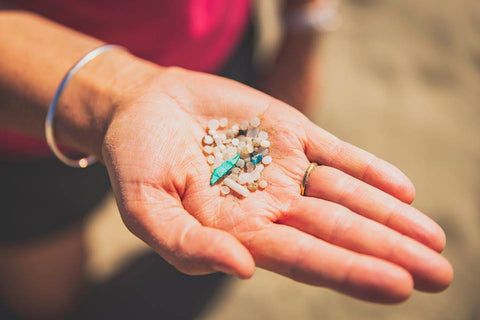
Manufacturing
Evans Bay in Wellington is covered with plastic ‘nurdles’ – the raw plastic beads or pellets used to make the products that we like to buy. These nurdles have escaped from the local manufacturers before they’ve even been made into anything useful, and have been described by environmentalists as “an oil spill, just a different form”.
The more plastic goods we consume, the more plastic is manufactured and the more nurdles are likely to escape into the ocean.
Solution: If we buy fewer plastic items, fewer nurdles will be created and land in our waterways. We’ll save money too, and space – you won’t have to Maree Kondoo your house!
Cigarette butts
Dropping cigarette butts is littering, and they go straight down the drains to the ocean. Cigarette butts are the most common item found on beach cleanups around the world, they’re made of plastic and do not biodegrade.
Solution: If you smoke, dispose of the butt in a responsible way. When you’re out use a pocket ashtray to keep the butt safe until you can dispose of it.
Littering
Ok, so we don’t litter but sometimes we accidentally drop a bottle lid, or ice-cream wrapper while we’re juggling the kids, the shopping and the car keys. If we all accidentally drop one piece of plastic every year, that’s five million pieces of plastic waste.
Solution: Accidents happen, so when you’re at the beach help others by picking up any rubbish you see. Download the app Litterati to make picking up rubbish into a treasure hunt – and join our Litterati club, named “The Rubbish Whisperer”, to add your total to ours!
]]>Straw Free September, it’s become an annual, global movement. A month where we are encouraged to politely refuse the straw, helping spark thought and discussion around the massive impact cheap, disposable single-use plastics are having on our environment. It is hoped, that this simple trigger encourages us to look more widely at what other unnecessary and easily replaceable plastics we rely on as part of our daily lives.
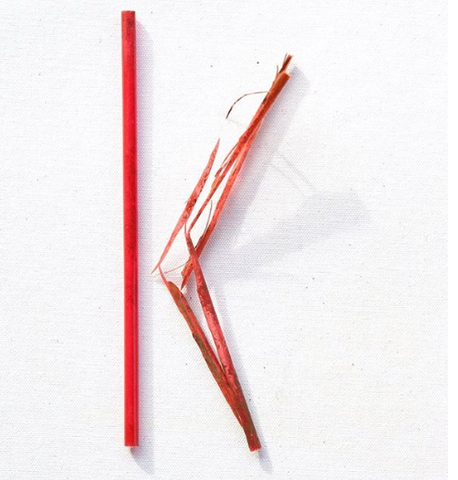
Plastic Straw rescued from the sea by Clean Coast Kiwi
However, for some people in our communities being strawless is problematic or even impossible. Those with physical needs, disabilities, people in medical care or the elderly, may rely on a straw to help keep them hydrated. Many of our product lines are developed in response to customers feedback or requests and our range of biodegradable bendy straws has been introduced to meet the needs to these markets. It means that conscious carers are able to support clients while also avoiding the long-term damage that plastics cause.
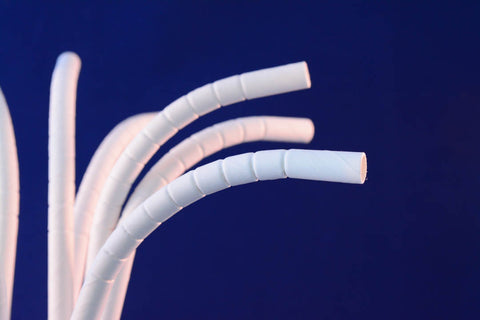
As our southern hemisphere Spring kicks into action and before Plastic Straw Free September comes to an end, now is a great time to take stock and make changes. In addition to the annual spring clean why not consider an eco-clean too? How about swapping out 3 things from your daily routine that use plastic? It could be as straightforward as a traditional toothbrush for a bamboo alternative, plastic bin liners for paper ones, reusable beeswax wraps for cling wrap or a plastic dish brush for a bamboo scrubber. Visit our store today and get your green glow on by making a simple swap.
]]>
OWNERS & MANAGERS: DANIEL MENDOLA & ALLY DODSON
This place is truly one of a kind. Owned and managed by a driven, inspiring young couple who place great importance on delivering a high quality sustainable tourism experience, it is set on the beachfront of a picture-postcard lush tropical paradise. The family friendly resort attracts active, independent, nature loving guests keen to make the most of the impressive marine environment and jungle wildlife.
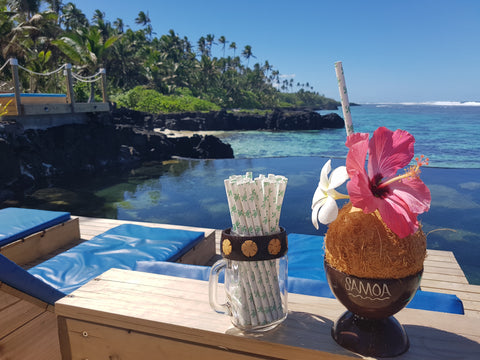
What did you want to be as a kid?
Ally – an archaeologist
Dan – a fighter pilot
What living person do you most admire, and why?
Ally – Serena Williams because she is strong, believes in her convictions and carries them through. She doesn’t let critics or negative press get in the way of her achievements on or off the court.
What is your favorite quote?
Dan - “Never look down on someone, unless you’re helping them back up.” (Jesse James)
What people say about our straws?
Most of our guests love that we have a no plastic rule at the resort. It’s all about education, with staff and guests - not expecting a straw with every drink they buy. Hopefully, it will soon be the norm that plastic straws aren’t served by anyone, anywhere across the world.

What is your proudest moment?
It is so hard to isolate a single proud moment, however, living an authentic life without conforming to mainstream society or what is expected of us as people. Also, working hard as employers and trying to help others, who may not be as fortunate as us.
What is your biggest work-related challenge?
Waste management and educating local staff about the need to be plastic free so that they look after our village and their country. Most guests are happy we have banned plastic from the resort but there are still some who automatically expect plastic bottled water. We offer free filtered water and we encourage guests to bring a reusable flask with them.
Why should other cafes / people make the swap to paper straws?
Every little helps - slight changes worldwide will have a massive impact, especially for the coming generations.
How do you relax?
If we have a couple of days off from the resort we love a jungle hike to explore less well known spots on the island.
What keeps you awake at night?
The sound of the ocean and the jungle - it’s super loud here in Samoa!
What will you do when you retire?
We would like to enjoy time traveling to new places and visiting new countries, but we have heaps of ideas so will be working for a few years yet!
What impact has swapping the straws made on your business?
It’s something we set as a business goal in 2016 and have achieved – it is awesome when a guest mentions they have noticed we have no plastic bottles or straws. We are hoping for a plastic free Samoa soon.

FIND OUT MORE:
]]>
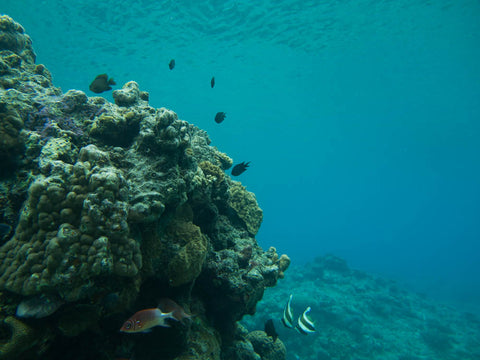
World Oceans Day will be marked this year on June 8th. This annual global celebration aims to help raise the profile of the ocean, highlight its importance in our lives and inspire more involvement to help to conserve this amazing resource, on which we all depend.
Since its inception in 2002, the global network of partners for the project has grown to include approximately 2,000 organizations that include, to name a few; aquariums, youth groups, sailors, governments, conservation organizations, educational establishments, the tourism sector and businesses.
This year NZ has several reasons to be smiling about its support of this awesome project. Firstly, the day before the event, the government will enforce regulations to ban the sale and manufacture of certain types of products containing plastic microbeads. Secondly, there are some great events taking place across the country to get involved with. To list or find out what is taking place near you, click on the link below: Events For World Ocean Day
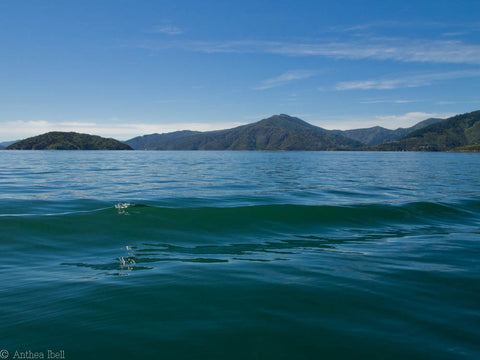
There are some motivated individuals, celebrities, community groups, organisations, businesses and political figures fighting to preserve the future of our seas; connecting to them through social media can offer valuable inspiration and facts to help fuel changes in our own lives. Here are our 6 Simple Steps To Help The Ocean Survive, with some links, to people already doing great things for the ocean:
- Pick It Up
One man’s healthy crusade to limit plastic in our oceans - Matt Akhurst aka therubbishrunner1 encourages us not to turn a blind eye to rubbish but to simply pick it up.
- Make Changes & Document Them
This simple project lead by a young generation of projectbluenz group of young NZ’ers changing the way they use single use plastics and documenting their journey, beautifully.
- Use Your Influence
Use your contacts and networks, just like leonardodicaprio, to spread the word. However small or large your sphere of influence you can.
- Collaborate To Find Solutions
theoceancleanup is a huge project marrying the best of technology, science and eco-change by experts across the world – their focus is the world’s largest clean up.
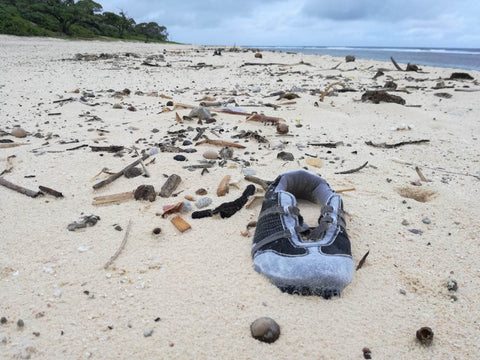
- Get Educated And Inspired
There are lots of collectives and organisations seeking to inspire and educate us towards change and earthmama.nz is just one NZ site where you can find well-presented facts and ideas.
- Go to the top
Our politicians get paid to listen to what their constituents want, need and believe. Connect with the PM jacindaardern or your local MP and ask them to get involved in promoting ocean friendly initiatives.
]]>